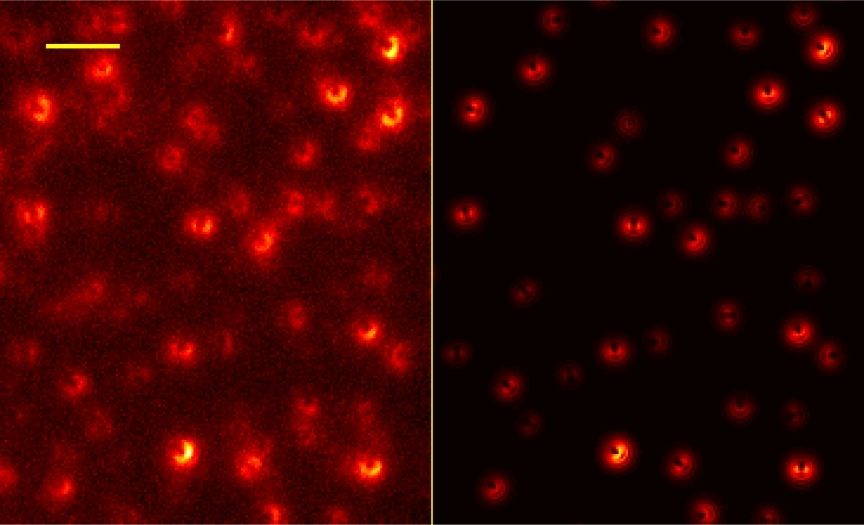
Sub-nanometre resolution in 3D position measurements of light-emitting molecules has been achieved by physicists in Germany. Jörg Enderlein and colleagues at the University of Göttingen achieved the result by replacing metal films used in previous super-resolution techniques with single layers of graphene. Their innovation could allow researchers in a wide variety of fields to measure molecular positions to unprecedented degrees of accuracy.
Recently, the technique of single-molecule localization super-resolution microscopy (SMLM) has become an incredibly useful tool for researchers in fields ranging from fundamental physics to medical research. By analysing images of single light-emitting molecules, researchers can pinpoint the positions of their centres to within single atomic widths. However, SMLM faces one significant shortcoming: it can only locate molecules in 2D, giving no information about their positions along the out-of-plane axis.
This problem can be partially overcome through the technique of metal-induced energy transfer (MIET), which introduces a thin metal film to the setup. The idea is that the apparatus picks up changes in the molecule’s fluorescence that are caused by the molecule coupling to collective excitations of surface plasmons in the film. Since this light emission varies with distance from the film, researchers can use MIET to calculate the molecule’s distance relative to the film surface, allowing them to locate it along the third axis. Yet with current versions of the technique, the accuracy of this out-of-plane measurement is 3–5 times worse than that of lateral localization, in the plane of the film.









